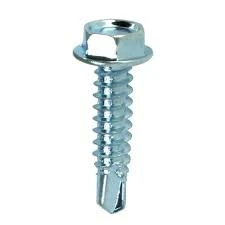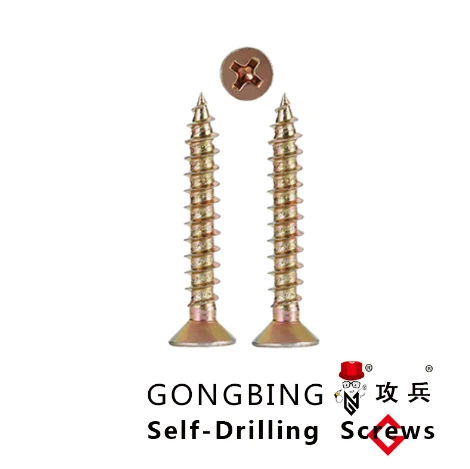Feb . 18, 2025 11:31
Back to list
DIN Standard Good Quality Steel Material Chemical Anchor Bolt From Direct Factory Fob Referenc
The world of construction and heavy-duty industrial applications has witnessed transformative changes over the years, with chemical resin bolts standing at the forefront of innovation. As an essential product in the realm of construction and engineering, chemical resin bolts offer a unique blend of efficacy, durability, and adaptability. This comprehensive overview delves into their unparalleled benefits, distinct applications, and the technical nuances that set them apart from traditional anchoring solutions.
Industry professionals, ranging from construction managers to structural engineers, often emphasize the user-friendly nature of chemical resin bolts. The installation process of these bolts, although requiring a meticulous approach, is straightforward and faster than maneuvering heavy-duty drilling equipment needed for expansive mechanical bolts. With many modern variants equipped with pre-measured cartridges and specialized dispensers, the process minimizes waste and ensures precise resin-to-hardener mixing ratios, a fundamental step in maximizing the adhesive’s performance. Moreover, the longevity and maintenance aspect of chemical resin bolts are noteworthy. These bolts offer superior resistance to chemicals, corrosive environments, and temperature variations, ensuring sustained performance over a building’s lifespan. Their robustness eliminates the need for frequent inspections or replacements, thereby reducing long-term maintenance costs and risk factors associated with structural failure. Despite the clear advantages, the successful use of chemical resin bolts depends heavily on precise installation and adherence to manufacturer guidelines. Professional training for installation personnel is crucial, entailing a deep understanding of factors such as curing times, temperature impacts on adhesion, and compatibility with various materials. Engineers and construction professionals must remain informed about the latest developments in chemical compositions and application technologies to leverage the full potential of these sophisticated fastening systems. In conclusion, chemical resin bolts are redefining safety and stability norms in construction and industrial applications worldwide. Their ability to provide secure anchorage in seismic areas, compatibility with diverse substrates, and efficient installation processes make them a preferred choice where traditional methods fall short. For industry specialists looking to enhance the durability and reliability of their projects, the incorporation of chemical resin bolts is not just an option, but a strategic necessity. As technology in resin chemistry advances, the future promises even more innovative solutions, further cementing their role as a critical component in modern engineering.


Industry professionals, ranging from construction managers to structural engineers, often emphasize the user-friendly nature of chemical resin bolts. The installation process of these bolts, although requiring a meticulous approach, is straightforward and faster than maneuvering heavy-duty drilling equipment needed for expansive mechanical bolts. With many modern variants equipped with pre-measured cartridges and specialized dispensers, the process minimizes waste and ensures precise resin-to-hardener mixing ratios, a fundamental step in maximizing the adhesive’s performance. Moreover, the longevity and maintenance aspect of chemical resin bolts are noteworthy. These bolts offer superior resistance to chemicals, corrosive environments, and temperature variations, ensuring sustained performance over a building’s lifespan. Their robustness eliminates the need for frequent inspections or replacements, thereby reducing long-term maintenance costs and risk factors associated with structural failure. Despite the clear advantages, the successful use of chemical resin bolts depends heavily on precise installation and adherence to manufacturer guidelines. Professional training for installation personnel is crucial, entailing a deep understanding of factors such as curing times, temperature impacts on adhesion, and compatibility with various materials. Engineers and construction professionals must remain informed about the latest developments in chemical compositions and application technologies to leverage the full potential of these sophisticated fastening systems. In conclusion, chemical resin bolts are redefining safety and stability norms in construction and industrial applications worldwide. Their ability to provide secure anchorage in seismic areas, compatibility with diverse substrates, and efficient installation processes make them a preferred choice where traditional methods fall short. For industry specialists looking to enhance the durability and reliability of their projects, the incorporation of chemical resin bolts is not just an option, but a strategic necessity. As technology in resin chemistry advances, the future promises even more innovative solutions, further cementing their role as a critical component in modern engineering.
Latest news
-
Weatherproof Plastic Expansion Anchors for OutdoorNewsJun.06,2025
-
Sustainability in the Supply Chain: Eco-Friendly TEK Screws ProductionNewsJun.06,2025
-
Load-Bearing Capacity of External Insulation FixingsNewsJun.06,2025
-
Double Head Bolts: Enhancing Efficiency in Industrial MachineryNewsJun.06,2025
-
Corrosion Resistance in Chipboard Screws: Coatings for Wholesale DurabilityNewsJun.06,2025
-
Butterfly Toggle Bolts : Enhancing Structural ResilienceNewsJun.06,2025
